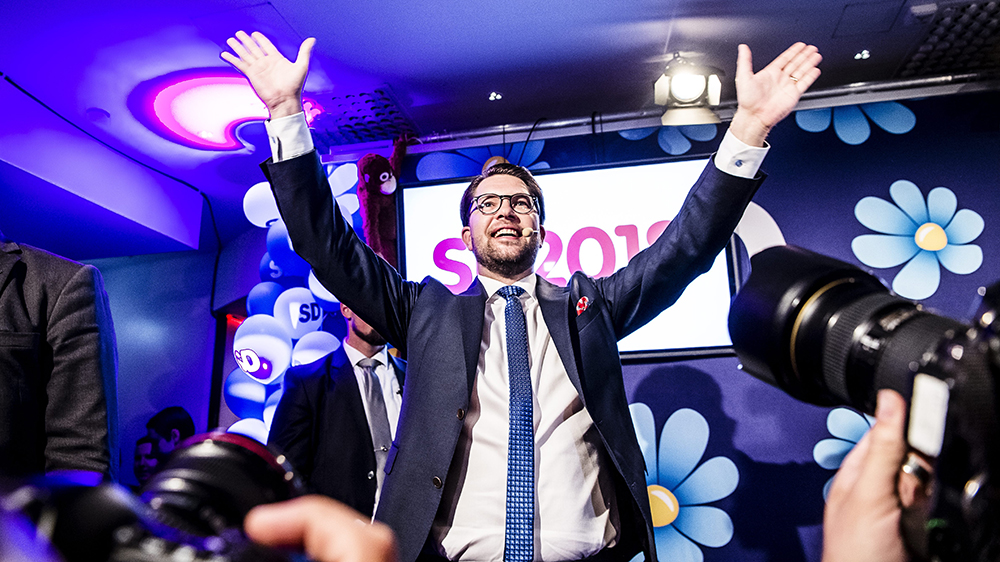Jessica Robinson has researched millions of tweets in connection with elections in the United States and Sweden. She found that the far right use Twitter to build global networks and to share their views on nationalism and immigration.

BECAME SWEDEN'S SECOND LARGEST PARTY: The Sweden Democrats, led by party leader Jimmie Åkesson, received 17.5 percent of the votes in the Swedish parliamentary election in 2018. Photo: Robin Lorentz-Allard/Aftonbladet/TT via NTB.
Media researcher Jessica Robinson has looked at the topics that trended on Twitter - now X - during the 2020 US presidential election and the Swedish parliamentary election in 2018. In her research, she has analysed around 500 million tweets.
"The Swedish election in 2018 was used as a starting point to address topics such as immigration and nationalism. 45 per cent of the English-language tweets relating to the Swedish election were about topics that engage the far right," Robinson says.
Sweden: Focus on nationalism and immigration
The title of the article about the Swedish findings, "Make Sweden Great Again", is a nod to former president of the United States Donald Trump's slogan "Make America Great Again". Robinson authored the article together with her research colleague, Gunn Enli.
The article analyses just under 200,000 English-language tweets from 92,000 users, sent a few weeks before and after the Swedish parliamentary election in 2018.
"What surprised me most about the findings was how the far right managed to set the agenda for the debate surrounding the Swedish election, and to a large extent make it revolve around nationalism and immigration. Things were more balanced during the US presidential elections in 2020, the political centre and left were more visible," Robinson says.
General distrust of democracy
The Twitter debate surrounding the Swedish election did not focus solely on Swedish factors, but also raised global issues, Robinson explains.
"It seemed as though Twitter users outside Sweden were more concerned about what the emergence of a nationalist party like the Sweden Democrats meant for their country than what was actually happening in Sweden. The British, for example, used it as a starting point to discuss topics related to Brexit".
Other common trends observed in the far-right tweets included immigration resistance, anti-globalism and Islamophobia. The messages are filled with a widespread distrust of democracy, government, and traditional media.






